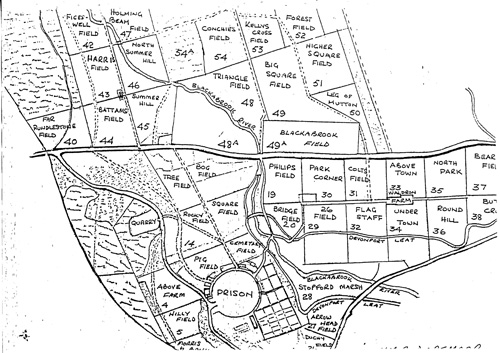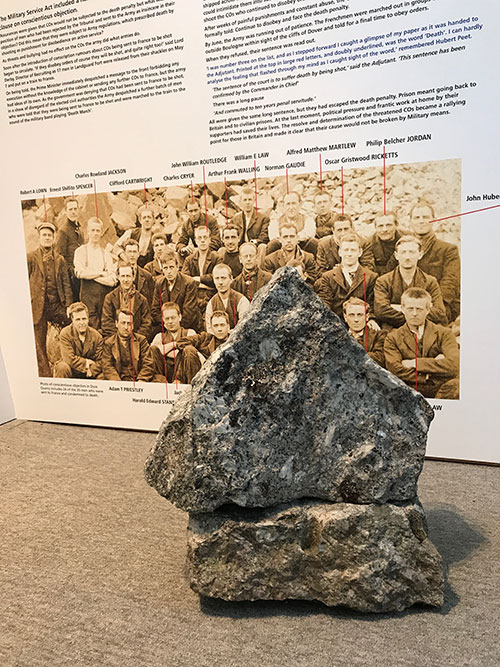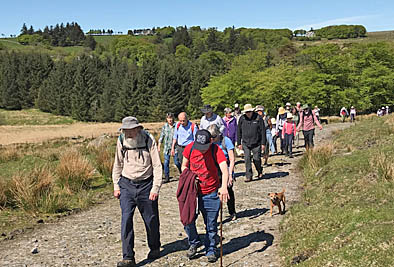
|
|
| Conchie wall and conchie field |
The 'conchie' wall stands on a bleak, windswept rise on Dartmoor a short distance from the grim Dartmoor Prison in Princetown, Devon. |
Come and touch stones from the conchie wall at the project's exhibition in London. Monday and Tuesday 9am to 4pm. Please call to book a time. 07971319227 |
By the time the COs arrived in Dartmoor the civilian prisoners had been moved to other prisons and the prison decommissioned. In today’s terminology it was rebranded as the Princetown Work Centre although ‘work camp’ might have been more accurate. As part of a new approach to the ‘problem’ of COs locks were removed from cell doors, wardens reduced in number and rebranded as Instructors. The Governor expected obedience and any infringements of rules, however petty, was met with punishment. Although the work was meant to be of ‘national importance’ it was largely pointless, unproductive and essentially punitive such as the building of seven foot dry stone walls. Clearing and preparing Duchy of Cornwall land by hand while not very efficient the free labour was, undoubtedly, an attractive proposition for the Duke of Cornwall, later to become King Edward VIII. Although having joined the army it was thought that he was a too valuable asset to be sent to the front line. The Act produced an unexpected number of conscientious objectors and prisons began to fill up with an large numbers of unruly COs. The problem was not quite on the scale of the hulks in Plymouth harbour but serious enough for the government to look for other options. Apart from absenting themselves there were three broad choices offered to COs. Hard labour in prison, putting on a uniform and becoming part of the Non Combatant Corp or agreeing to take up ‘prescribed work of national importance’. The men in Dartmoor were in the third category though even here some felt too compromised and asked to be returned to prison and solitary confinement. |
MARKING
Among the many place that CO Day events took place in the UK and around the world a memorial walk took place up the ‘conchie’ road. A road built by hand by the CO in Dartmoor.
|
|
"Dartmoor was not a place where angels flaped their wings."



 Launched in March 1916 shortly after the first conscientious objectors were being forced into the army. Month by month we publish extract from The Tribunal which include a contextual comentary. Read the instalments
Launched in March 1916 shortly after the first conscientious objectors were being forced into the army. Month by month we publish extract from The Tribunal which include a contextual comentary. Read the instalments